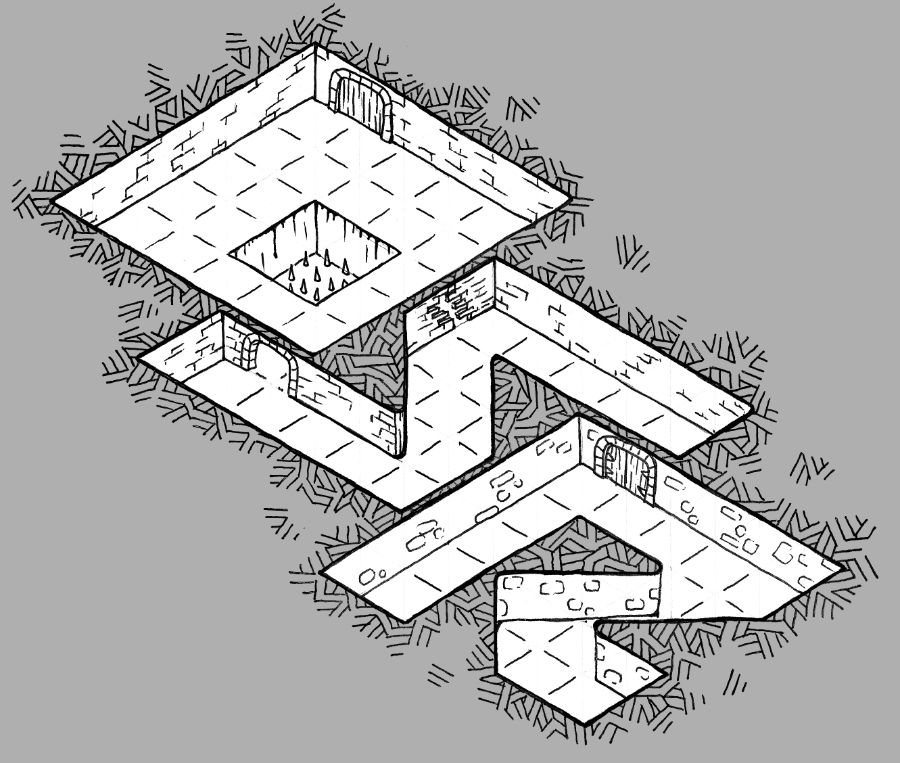I've long enjoyed the rather.... colorful.... posts over at gamingwhileconservative. The man has a way with words, and an opinion on gaming that anyone who lives the phrases "git gud" and likes the brutal difficulty curve of your typical roguelike would recognize and take to heart. You can't avoid the meta - embrace it. Find ways to lampshade it on occasion as needed. Your character may be better than average, but he's not world famous yet - so why do you have a backstory/origin that's more than one brief line of text? Also - part of the fun is working around the deficiencies of your character - Three Steps, who I've mentioned before, started out with just one hit point.
Neither straight 3s nor straight 18s won’t make that process any more nor less challenging for the DM. The chargen process isn’t about the DM at all. If you think it is, you’ve got to recalibrate your assumptions. The DM faces only two challenges:
- The challenge of keeping the challenges, monster treasure and trap, interesting and engaging enough for the players to want to keep poking at his campaign world to find the loot and save the princess
- The challenge of remaining impartial even when the players are acting like the bunch of window licking short bussers that gravitate toward playerhood in the first place
Amen. While I personally gravitate to the "roll several sets of characters and pick one" methodology of ACKs, you still very rarely end up with characters that don't have at least one stat below average, often by enough to negatively impact your character in some way.
This is not a story game, not in the sense of your typical Pathfinder adventure, or novel. There is rarely a grand overarching theme. There are, however, threads that run through the game, and stories that evolve as the characters grow, due to the choices the players make. Things that started out as red herrings or distractions suddenly become major running plot points or gags.
But then I learned early in a high school Traveller campaign exactly how quickly smart players could short circuit a carefully planned out set piece. Or bypass it entirely.
Speaking of Traveller, having characters die before you even finish rolling them up certainly keeps you from getting too much into their special snowflake backstory.
He also has some excellent words on what constitutes playing D&D, vs storygaming or that other stuff.
That storytelling game that guys like Pundy play is a fine game. Go play it. Have fun. With my blessing. I don’t begrudge people for their weird hobbies. Apparently some people use sticks to knock balls into holes 200 yards away. Some people kill animals and eat them. Some people dress up as animals and call people that kill animals and eat them names because they don’t think people should kill animals and eat them. Some people write mean jokes about people who dress up as animals and call people that kill animals and eat them names because they don’t think people should kill animals and eat them because they don’t think people should dress up as animals and call people that kill animals and eat them names because they don’t think people should kill animals and eat them.
The point here is that nobody is mad at anyone for not playing D&D. Technically, we’re not even mad at people who play D&D wrong for playing D&D wrong so much as we’re helpfully pointing out that people who play D&D wrong aren’t actually playing D&D at all, and we are generously offering them help.
You see the difference here?
If you really like pretending to be an elf, you’re not playing D&D. You are playing a storygame. Or you are LARPing. Or you are crazy. But you are not playing D&D. People who play D&D don’t lose site of the fact that they are pushing a pawn around a tabletop. That pawn might have ‘elf’ as a label, but it’s still just a pawn. They might think “What would my pawn do here? What’s best for my pawn? How can my pawn avoid combat because he only has 2HP and an AC of 7?”

